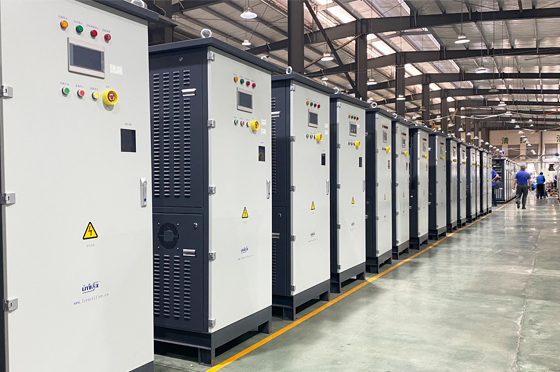Products
Industries

Regarding the rectifiers in electroplating process, such as chrome, zinc, copper, gold, nickel, there are the applications of various types of rectifiers.
Alternating Current Rectifiers (Inverters)
Although DC rectifiers dominate electroplating, alternating current (AC) rectifiers, also known as inverters, play an important role in certain specialized cases. They convert DC power sources back into AC power and are suitable for specific electroplating processes, especially those requiring frequency control.
Frequency Control: AC rectifiers offer adjustable frequency outputs, which are particularly valuable for specific electroplating processes.
Special Requirements: In some cases, AC power sources are needed to meet specific requirements, such as in certain copper electroplating processes.
Pulse Width Modulation (PWM) Rectifiers
PWM rectifiers are highly controllable rectifier types suitable for electroplating processes requiring extremely precise current control. Their applications in copper, aluminum, and zinc electroplating are increasingly widespread.
Precise Control: PWM rectifiers utilize pulse width modulation technology to provide extremely precise current control, making them suitable for high-quality metal production.
Energy Efficiency: They typically operate with high efficiency, reducing energy wastage.
High-Frequency Rectifiers
High-frequency rectifiers prove to be highly useful in certain specialized electroplating processes. They offer higher frequency outputs and are applicable to specific electroplating requirements.
High-Frequency Output: These rectifiers generate high-frequency currents, suitable for specific metal electroplating processes.
Mitigation of Electrode Effects: High-frequency rectifiers can reduce electrode effects, contributing to improved production quality and efficiency.
Different types of rectifiers play indispensable roles in copper, aluminum, and zinc electroplating, helping industrial processes achieve stability, efficiency, and high-quality outcomes. The choice of the appropriate rectifier type depends on specific electroplating process requirements and production goals.